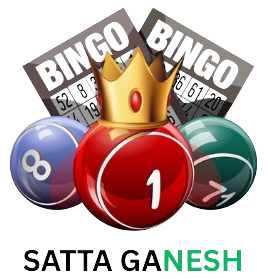The Fascinating World of Lotteries: Everything You Need to Know
Introduction
Lotteries have been a part of human history for centuries, serving as both a source of entertainment and a way to change lives overnight. From ancient times where rulers used lotteries to fund public works, to today’s billion-dollar jackpots like Powerball and Mega Millions, the lottery remains one of the most popular games of chance in the world.
In this article, we’ll explore what makes lotteries so fascinating, how they work, the different types of lottery games, their benefits, risks, and strategies to play smartly. Whether you’re completely new to lotteries or just curious about how they operate, this guide will give you the full picture.
What is a Lottery?
A lottery is a game of chance in which people purchase tickets with the hope of winning prizes. These prizes can be cash, property, or other rewards. Winners are determined randomly, usually by drawing numbers or symbols.
Key Features of a Lottery
- Randomness: Outcomes are based entirely on chance.
- Accessibility: Anyone can participate with a small entry fee.
- High Rewards: Life-changing sums of money are often at stake.
- Variety: Different games exist, from local raffles to international jackpots.
A Brief History of Lotteries
Lotteries are far from a modern invention. Their history stretches back thousands of years:
- Ancient China (200 BC): The Han Dynasty used lotteries to fund the Great Wall.
- Roman Empire: Lotteries funded civic projects and provided entertainment.
- Europe (15th Century): The first recorded lotteries raised money for town fortifications.
- Modern Era: Today, state-run lotteries fund education, health, and community development.
Popular Types of Lotteries
There isn’t just one kind of lottery. Here are the most common types:
- National Lotteries – Run by governments, offering massive jackpots.
- Powerball & Mega Millions – Famous multi-state U.S. games with record-breaking prizes.
- Scratch Cards – Instant-win games available at convenience stores or online.
- Daily Lotteries – Smaller prizes but frequent draws.
- Online Lotteries – Global participation through digital platforms.
Why Do People Play the Lottery?
The popularity of lotteries isn’t just about money. Several factors make them appealing:
- Hope & Dreams: The idea of becoming wealthy overnight inspires people.
- Entertainment: It’s fun to imagine what you would do if you won.
- Community Projects: In many countries, lotteries fund public services.
- Accessibility: Tickets are affordable, giving everyone a chance to participate.
The Odds of Winning
One important aspect of lotteries is the odds. For example:
- Powerball odds: 1 in 292 million
- Mega Millions odds: 1 in 302 million
- Smaller state lotteries: 1 in a few million
While the chances are slim, the excitement keeps players engaged.
Pros and Cons of Playing the Lottery
Benefits:
- Opportunity to win life-changing money.
- Affordable entry compared to other forms of gambling.
- Supports public projects and charities.
- Fun and engaging social activity.
Risks:
- Very low chances of winning.
- Can lead to financial problems if played irresponsibly.
- Some players develop addictive habits.
Smart Ways to Play the Lottery
While there’s no guaranteed way to win, here are tips to play wisely:
- Set a Budget – Never spend more than you can afford to lose.
- Join a Lottery Pool – Increases your chances by pooling money with friends or coworkers.
- Choose Less Popular Games – Smaller games often have better odds.
- Stay Consistent – Some players stick with the same numbers regularly.
- Play for Fun – Treat it as entertainment, not as a financial plan.
Famous Lottery Winners & Their Stories
- Mavis Wanczyk (2017): Won $758 million in Powerball, one of the largest jackpots ever.
- Richard Lustig: Claimed to win seven lottery jackpots using disciplined strategies.
- Anonymous Winners: Many prefer to stay private to protect their wealth.
These stories highlight both the excitement and challenges of sudden wealth.
The Role of Technology in Lotteries
Modern lotteries have embraced digital transformation:
- Online Ticket Purchases: Players can now buy tickets via apps and websites.
- Random Number Generators (RNGs): Ensure fairness in draws.
- Blockchain Lotteries: Offer transparency and global participation.
Technology makes lotteries more accessible, fair, and secure.
Responsible Lottery Play
It’s important to remember that lotteries should be played responsibly. Here’s how:
- Play within your means.
- Don’t rely on lotteries as an income source.
- Seek help if gambling becomes a problem.
- Educate yourself about odds and probabilities.
FAQs About Lotteries
Q1: Can I really win the lottery?
Yes, but the chances are extremely low. Winning is possible, but it’s rare.
Q2: Is buying lottery tickets online safe?
Yes, if you use official and licensed lottery platforms.
Q3: Are lotteries a scam?
No, state and national lotteries are legitimate. However, watch out for fake lottery scams.
Q4: Do lottery winners pay taxes?
Yes, most countries tax lottery winnings, sometimes heavily.
Q5: What happens if a winner doesn’t claim their prize?
Unclaimed prizes are usually returned to state funds or donated to public projects.
Conclusion
Lotteries are one of the most fascinating games of chance in human history. They combine hope, entertainment, and life-changing potential. While the odds may be small, millions of people play every year, inspired by the possibility of winning big.
The key to enjoying the lottery is to play responsibly—treat it as fun, not as a financial plan. With modern innovations like online play and digital transparency, lotteries are more accessible than ever before.
Whether you buy a ticket occasionally or just enjoy reading lottery stories, the world of lotteries will always capture the imagination of dreamers everywhere.




